Please note, links to all the Freedom Essays are included at the end of this essay. Open any essay to read, print, download, share or listen to (as an audio).
Freedom Essay 30
‘Resignation’, the unacknowledged yet most
important psychological event in human life
Written by Jeremy Griffith, 2017
Resignation has been briefly mentioned in earlier Freedom Essays, but the following presentation, which is essentially a condensation of chapters 2:2 and 2:3 of my book FREEDOM, explains and describes this important subject comprehensively.
Firstly, the overall and fundamental situation that the human race has been living in, which was set out in Video/F. Essay 4, needs to be re-iterated. In that essay it was described how cooperative, loving and gentle our bonobo-like ape ancestors were—the instinctive memory of which is our moral soul—and how unbearably depressing it has been for us fully conscious, psychologically upset, soul-corrupted, ‘fallen’, angry, egocentric and alienated humans to not be able, until now, to explain and understand why we corrupted our all-loving innocent soul. That video/essay made it clear that the feeling of unworthiness, shame and guilt from not being able to understand why we had seemingly destroyed such a loving existence and turned utopia into dystopia has been so great that since the upset state of the human condition became extreme (basically since the advent of agriculture some 11,000 years ago—see F. Essay 38) every generation of humans has had no choice but to resign themselves to living in denial of the unbearably depressing issue of their extremely corrupted condition. And as will be explained in this essay, the time when each individual within those generations of overly upset humans wrestled with the unbearably depressing issue of their corrupted condition before eventually realising there was no option but to resign themselves to living in denial of the issue was during their early adolescence.
(Note that some of the following material was included much earlier in Video/F. Essay 10 to introduce what the human condition actually is. Its re-use here is because a clear appreciation of what the human condition is is needed for the process of Resignation to be fully understood.)
In the absence of understanding of the human condition, complete block-out or denial of it was the only option available. The, until now, unfathomable horror of our species’ corrupted, ‘fallen’, innocence-destroyed, Garden-of-Eden-abandoned state was truthfully revealed in the above cartoon by Michael Leunig. Leunig’s ‘park’ is certainly not a picture of a lovely ordered environment where people peacefully and happily enjoy themselves, as we all too easily prefer to delude ourselves that the world we have created is like. Rather, it shows a mother and child approaching the ‘Gardens of the Human Condition’ with an expression of bewildered dread on the face of the mother, and in the case of the child, wide-eyed shock. Yes, as Leunig cleverly intimates, our world is no longer an innocent Garden of Eden, but a devastated realm of human-condition-stricken, psychologically distressed humans where ‘inhumanity’ reigns. (F. Essay 21 provides the biological explanation for how our distant ape ancestors came to live in a cooperative, loving, innocent, Edenic state, and you can read many wonderful descriptions of this time of innocence in F. Essay 53.) With this masterpiece, Leunig has boldly revealed the truth that despite the magnificence of our mental capabilities and our undeniable capacity for immense soulful sensitivity and love, we humans have become a brutally angry, hateful, destructive, arrogant, egocentric, selfish, mad, lonely, unhappy and psychologically depressed species. Instead of love, beauty and harmony, Leunig has people fighting, beating and strangling each other, drunk out of their minds, depressed, lonely, crying, hiding and suiciding, going mad, and egocentrically holding forth—reflecting, in effect, every aspect of the human condition.
The full horror of our species’ contradictory nature was made explicit by the polymath Blaise Pascal when he wrote, ‘What a chimera then is man! What a novelty, what a monster, what a chaos, what a contradiction, what a prodigy! Judge of all things, imbecile worm of the earth, repository of truth, a sewer of uncertainty and error, the glory and the scum of the universe!’ (Pensées, 1669). William Shakespeare was equally revealing of the paradoxical true nature of the human condition when he wrote, ‘What a piece of work is a man! How noble in reason! How infinite in faculty!…In action how like an angel! In apprehension how like a god! The beauty of the world! The paragon of animals! And yet, to me, what is this quintessence of dust? [Brutal and barbaric] man delights not me’ (Hamlet, 1603)!!
People often think that the human condition refers to the state of widespread poverty and physical hardship in human life, or to problems such as human inequality, but these problems are only superficial manifestations and aspects of the human condition. What Pascal and Shakespeare have written about the dichotomy of ‘man’ is what the human condition really is. The human race as a whole—and we individually because we each carry manifestations of these aspects—embodies this most extraordinary ‘contradiction’ of being the most brilliantly clever of creatures, the ones who are ‘god’-‘like’ in our ‘infinite’ ‘faculty’ of ‘reason’ and ‘apprehension’, and yet we also behave in the most seemingly completely unclever ‘monster[ous]’, ‘imbecile worm of the earth’, ‘sewer of uncertainty and error’, ‘scum of the universe’ ‘quintessence of dust’ way. Not only are we competitive, aggressive and selfish when our moral instinctive self expects us to be cooperative, loving and selfless, we are actually the meanest, most vicious of species, one that is only too capable of inflicting pain, cruelty, suffering and degradation. As the philosopher Arthur Schopenhauer wrote, ‘man is the only animal which causes pain to others with no other object than causing pain…No animal ever torments another for the sake of tormenting: but man does so, and it is this which constitutes the diabolical nature which is far worse than the merely bestial’ (Essays and Aphorisms, tr. R.J. Hollingdale, 1970, p.139 of 237). Yes, there has been this immensely perplexing and seemingly unanswerable question of are we ‘monster[s]’, the ‘essence’ of ‘dust’, ‘the scum of the universe’, or are we a wonderful ‘prodigy’, even ‘glor[ious]’ ‘angel[s]’?
Thankfully, as explained in THE Interview and Video/F. Essay 3, we humans can at long last now explain and understand that we are not, in fact, ‘monster[s]’ but ‘glor[ious]’ heroes. HOWEVER—having had to live without this reconciling and dignifying understanding has meant that each human growing up under the duress of the human condition has suffered from immense insecurity about their fundamental goodness, worth and meaningfulness. So much so that the more we tried to think about this, in truth, most obvious question of our meaningfulness and worthiness (or otherwise), the more insecure and depressed our thoughts became. The emotional anxiety produced when reading Pascal’s and Shakespeare’s descriptions of the human condition gives some indication of just how unnervingly confronting the issue of the human condition really is. But the truth, as initially emphasised and as will now be more fully explained, is that this intensely personal yet universal issue of the human condition has been so unbearably confronting and depressing that we eventually learnt as we grew up that we had no choice but to resign ourselves to never revisiting the subject, to never again looking at the seemingly inexplicable issue of the human condition. The examination of this process of what I call ‘Resignation’ to living in Plato’s dark cave of denial of the human condition (see The Great Guilt that causes the Deaf Effect and Video/F. Essay 11), and how it unfolds, will reveal how immensely fearful humans have been of the human condition, and therefore how transforming it is for humans to no longer have to live in Plato’s dark and lonely ‘cave’ in fear of it.
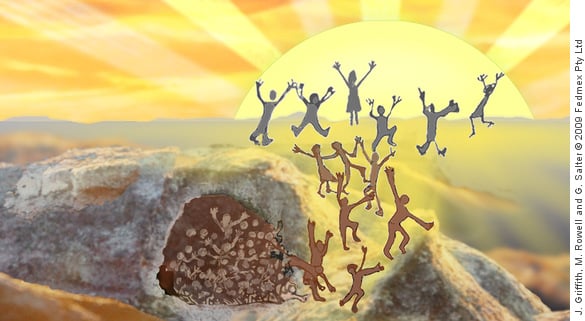
Plato’s cave of darkness where we’ve had to hide, but which we now leave
and enter a transformed world flooded with the light of understanding.
As is explained in detail in chapter 8 of FREEDOM, as humans grew up in a human-condition-stricken world that wasn’t able to be truthfully analysed and explained, we each became increasingly troubled by the glaringly obvious issue of the extreme ‘imperfections of human life’ (as Plato referred to ‘our human condition’). This progression went through precise stages. As consciousness emerged in humans we progressed from being able to sufficiently understand the relationship between cause and effect to become self-conscious, aware of our own existence, during our infancy, to proactively carrying out experiments in self-management during our childhood, at which point all the manifestations of the human condition of anger, egocentricity and alienation began to reveal themselves. It follows that it was during our childhood that we each became increasingly aware of not only the imperfection of the human-condition-stricken world around us, but of the imperfection of our own behaviour—that we too suffered from anger, selfishness, meanness and indifference to others. Basically, all of human life, including our own behaviour, became increasingly bewildering and distressing, to such a degree that by the time children reached late childhood they generally entered what is recognised as the ‘naughty nines’, where their confusion and frustration was such that they even angrily began taunting and bullying those around them.
By the end of childhood, however, children realised that lashing out in exasperation at the imperfections, wrongness and injustice of the world didn’t change anything and that the only possible way to end their frustration was to understand why the world, and their own behaviour, was not ideal. It was at this point, which occurred around 12 years of age, that children underwent a dramatic change from being frustrated, protesting, demonstrative, loud extroverts into sobered, deeply thoughtful, quiet introverts, consumed with anxiety about the imperfections of life under the duress of the human condition. Indeed, it is in recognition of this very significant psychological transition from a relatively human-condition-free state to a very human-condition-aware state that we separate these stages into ‘Childhood’ and ‘Adolescence’, a shift even our schooling system marks by having children graduate from what is generally called primary school into secondary school. What then happened during adolescence was that, at about 14 or 15 years of age and after struggling for a few years to make sense of existence, the search for understanding became so confronting of those extreme internal imperfections that adolescents had no choice but to ‘Resign’ to living in denial of the whole unbearably depressing and seemingly unsolvable issue of the human condition—after which they became superficial and artificial escapists, not wanting to look at any issue too deeply, and, before long, combative and competitive power-fame-fortune-and-glory, relief-from-the-agony-and-guilt-of-the-human-condition-seeking resigned adults.
Delving deeper into how the journey toward ‘Resignation’ unfolds will make it clear why resigned humans became so superficial and artificial—so alienated/soul-dead—in their behaviour and thinking.
So what happened at around 14 or 15 years of age for virtually all humans growing up under the duress of ‘the imperfections’ of ‘our human condition’ was that to avoid the suicidal depression that accompanied any thinking about the issue of our species’, and our own, seemingly extremely imperfect, soul-corrupted condition, there was simply no choice but to stop grappling with the answerless question. And so despite the human condition being the all-important issue of the meaningfulness or otherwise of our existence, there came a time when adolescents reached the age of about 14 or 15 that they were forced to put the whole depressing subject aside once and for all and just hope that one day in the future the explanation and defence for our species’, and thus our own, apparently horrifically flawed, seemingly utterly disappointing, sad, soul-devastated state would be found, because then, and only then, would it be psychologically safe to even broach the subject. (And since that all-precious explanation of our corrupted condition has now been found, we can safely admit and address the subject of Resignation.)
In 2010 a poignantly honest film titled It’s Kind Of A Funny Story (from the book of the same name about the author Ned Vizzini’s own experiences), was made about a 16-year-old boy named Craig who is going through the agonising process of grappling with the human condition; he struggles with ‘suicidal’ ‘depression’ from ‘anxiety’ about ‘grades, parents [who don’t seem to have ‘a clue’ that ‘there’s something bigger going on’], two wars, impending environmental catastrophe, a messed up economy’. Eventually a psychiatrist counsels him that ‘there is a saying that goes something like this: “Lord, grant me the strength to change the things I can, the courage to accept the things I can’t, and the wisdom to know the difference”’; basically he is advised to resign himself to living in denial of the human condition. (Tragically, Vizzini was eventually overcome by his anguish and committed suicide.)
Catherine Yeulet/iStockphoto; yamasan/AdobeStock; Al Troin/AdobeStock
The Beatles’ song Let It Be—consistently voted one of the most popular songs of the twentieth century—is actually an anthem to this need that adolescents have historically had, when confronted with the unbearable ‘hour of darkness’ that came from grappling with the issue of all ‘the broken hearted people living in the world’, to ‘let it be’ ‘until tomorrow’ when ‘there will be an answer’ (Lennon/McCartney, 1970). So when the great poet Gerard Manley Hopkins wrote about the unbearably depressing subject of the human condition in his aptly titled poem No Worst, There Is None (1885), his words, ‘O the mind, mind has mountains; cliffs of fall, frightful, sheer, no-man-fathomed’, did not exaggerate the depth of depression humans faced if we allowed our minds to think about the human condition while it was still to be ‘fathomed’/understood/‘answer[ed]’. Yes, when, in ‘my hour of darkness’, ‘Mother Mary comes…speaking words of wisdom, let it be, let it be’—accept the adults’ ‘wisdom’, and don’t go there!
Mygate/Shutterstock; Susan Stevenson/AdobeStock; Sabphoto/AdobeStock
It’s little wonder then that the human condition has been described so vehemently as ‘the personal unspeakable’ and as ‘the black box inside of humans they can’t go near’ (personal conversations, WTM records, Feb. 1995)—and why it is so very rare to find a completely honest description of adolescents going through the excruciating process of Resignation, of resigning themselves to having to block out the seemingly inexplicable question of their worth and meaning and live, from that time on, in denial of the unbearable issue of the human condition. Having already been through this terrible process of Resignation, most adults simply couldn’t allow themselves to recall, recognise and thus empathise with what adolescents were experiencing (they were, as Ned Vizzini/Craig complained, rendered ‘clue’-less to the situation). And so our young have been alone with their pain, unable to share it with those closest, or the world at large. All of which makes the following account of a teenager in the midst of Resignation, by the American Pulitzer Prize-winning child psychiatrist Robert Coles, incredibly special: ‘I tell of the loneliness many young people feel…It’s a loneliness that has to do with a self-imposed judgment of sorts…I remember…a young man of fifteen who engaged in light banter, only to shut down, shake his head, refuse to talk at all when his own life and troubles became the subject at hand. He had stopped going to school…he sat in his room for hours listening to rock music, the door closed…I asked him about his head-shaking behavior: I wondered whom he was thereby addressing. He replied: “No one.” I hesitated, gulped a bit as I took a chance: “Not yourself?” He looked right at me now in a sustained stare, for the first time. “Why do you say that?” [he asked]…I decided not to answer the question in the manner that I was trained [basically, ‘trained’ in avoiding what the human condition really is]…Instead, with some unease…I heard myself saying this: “I’ve been there; I remember being there—remember when I felt I couldn’t say a word to anyone”…The young man kept staring at me, didn’t speak…When he took out his handkerchief and wiped his eyes, I realized they had begun to fill’ (The Moral Intelligence of Children, 1996, pp.143-144 of 218). The boy was in tears because Coles had reached him with some recognition and appreciation of what he was wrestling with; Coles had shown some honesty about what the boy could see and was struggling with, namely the horror of the utter hypocrisy of human behaviour—including his own.
The middle picture below is particularly revealing of this utter hypocrisy of human behaviour now. It is clearly a picture created by an adolescent girl in the midst of Resignation. Having not yet blocked out from her mind the extreme contrast between our species’ original cooperative and loving moral instinctive self or soul (which she, like every other human, is instinctively aware of) and our present horrifically corrupted, angry, egocentric and alienated condition (symbolised by the green-eyed wolf drawing she has made of herself), she is still wrestling with the horror of the utter hypocrisy of our horrifically corrupted or ‘fallen’, soul-devastated condition.
Stanislaw Mikulski/AdobeStock; mitarart/AdobeStock
It is revealing to note here that the words Coles used in his admission that he too had once grappled with the issue of the human condition, of ‘I’ve been there’, are exactly those used by one of Australia’s greatest poets, Henry Lawson, in his extraordinarily honest poem about the unbearable depression that results from trying to confront the question of why human behaviour is so at odds with the cooperative, loving—or, to use religious terms, ‘Godly’—ideals of life (see F. Essay 23 for an explanation of Integrative Meaning or ‘God’). In his 1897 poem The Voice from Over Yonder, Lawson wrote: ‘“Say it! think it, if you dare! Have you ever thought or wondered, why the Man and God were sundered [torn apart]? Do you think the Maker blundered?” And the voice in mocking accents, answered only: “I’ve been there.”’ The unsaid words in the final phrase, ‘I’ve been there’, being ‘and I’m certainly not going ‘there’ again!’—with the ‘there’ and the ‘over yonder’ of the title referring to the state of deepest, darkest depression.
Goya’s The sleep of reason brings forth monsters, 1796-97
In his bestselling 2003 book, Goya (about the great Spanish artist Francisco Goya), another Australian, Robert Hughes, who for many years was TIME magazine’s art critic, described how he ‘had been thinking about Goya…[since] I was a high school student in Australia…[with] the first work of art I ever bought…[being] a poor second state of Capricho 43…The sleep of reason brings forth monsters…[Goya’s most famous etching reproduced above] of the intellectual beset with doubts and night terrors, slumped on his desk with owls gyring around his poor perplexed head’ (p.3 of 435). Hughes then commented that ‘glimpsing The sleep of reason brings forth monsters was a fluke’ (p.4). A little further on, Hughes wrote of this experience that ‘At fifteen, to find this voice [of Goya’s]—so finely wrought [in The sleep of reason brings forth monsters] and yet so raw, public and yet strangely private—speaking to me with such insistence and urgency…was no small thing. It had the feeling of a message transmitted with terrible urgency, mouth to ear: this is the truth, you must know this, I have been through it’ (p.5). Again, while the process of Resignation is such a horrific experience that adults determined never to revisit it, or even recall it, Hughes’ attraction to The sleep of reason brings forth monsters was not the ‘fluke’ he thought it was. The person slumped at the table with owls and bats gyrating around his head perfectly depicts the bottomless depression that occurs in humans just prior to resigning to a life of denial of the issue of the human condition, and someone in that situation would have recognised that meaning instantly, almost wilfully drawing such a perfect representation of their state out of the world around them. Even the title is accurate: ‘The sleep of reason’—namely, the deep thinking that occurs if we let our superficial ‘reasoning’ slip—does ‘bring forth monsters’! While Hughes hasn’t recognised that what he was negotiating ‘At fifteen’ was Resignation, he has accurately recalled how strongly he connected to what was being portrayed in the etching: ‘It had the feeling of a message transmitted with terrible urgency, mouth to ear: this is the truth, you must know this, I have been through it.’ Note how Hughes’ words, ‘I have been through it’, are almost identical to Coles’ and Lawson’s words, ‘I’ve been there.’
And so, unable to acknowledge the process of Resignation, adults instead blamed the well-known struggles of adolescence on the hormonal upheaval that accompanies puberty, the so-called ‘puberty blues’—even terming glandular fever, a debilitating illness that often occurs in mid-adolescence, a puberty-related ‘kissing disease’. These terms, ‘puberty blues’ and ‘kissing disease’, are dishonest, denial-complying, Plato’s-cave-dwelling, evasive excuses because it wasn’t the onset of puberty that was causing the depressing ‘blues’ or glandular fever, but the trauma of Resignation. For glandular fever to occur, a person’s immune system must be extremely rundown, and yet during puberty the body is physically at its peak in terms of growth and vitality—so for an adolescent to succumb to the illness they must be under extraordinary psychological pressure, experiencing stresses much greater than those that could possibly be associated with the physical adjustments to puberty, an adjustment, after all, that has been going on since animals first became sexual. No, the depression and glandular fever experienced by young adolescents are a direct result of the trauma of having to resign to never again revisiting the unbearably depressing subject of the human condition.
The latest way that dishonest, mechanistic science has found to deny that adolescent mental illnesses are due to the process of Resignation is to blame them on a lack of physical development in the adolescent brain. An article in the June 2015 edition of Scientific American, titled ‘The Amazing Teen Brain’, claims that while the emotional limbic brain matures during puberty, the prefrontal cortex, which keeps a lid on impulsive actions, doesn’t approach full development until a decade later, so it doesn’t properly contain the adolescent’s limbic emotions! The conscious mind does struggle to deal with the limbic soul’s agony about the human condition, but it’s not because it isn’t developed enough, it’s because during Resignation the adolescent hasn’t yet decided to resign to a life of consciously blocking out the limbic soul. Do the teenagers in all these photos that have been included look like they’re suffering from immature brains? No, they are clearly deeply, deeply distressed, worried sick about something for God’s sake! What a load of avoid-the-truth-of-the-psychological-dilemma-of-the-human-condition-at-all-costs mechanistic, Plato’s-dark-cave-dwelling crap! Scientific American, more like Scientific Garbage Bin. (Read more about mechanistic science’s dishonest excuses for human behaviour in Video/F. Essay 14 & F. Essay 40.)
It makes complete sense then why that sublime classic of American literature, J.D. Salinger’s 1951 novel The Catcher in the Rye, is a masterpiece because, like Coles, Salinger dared to write about that forbidden subject for adults of adolescents having to resign to a dishonest life of denial of the human condition—for The Catcher in the Rye is actually entirely about a 16-year-old boy struggling against Resignation. The boy, Holden Caulfield, complains of feeling ‘surrounded by phonies’ and ‘morons’ who ‘never want to discuss anything’, of living on the ‘opposite sides of the pole’ to most people, where he ‘just didn’t like anything that was happening’, to wanting to escape to ‘somewhere with a brook…[where] I could chop all our own wood in the winter time and all’. He knows he is supposed to resign—in the novel he talks about being told that ‘Life…[is] a game…you should play it according to the rules’, and to feeling ‘so damn lonesome’ and ‘depressed’ that he felt like ‘committing suicide’. As a result of all this despair and disenchantment with the world he keeps ‘failing’ his subjects at school and is expelled from four for ‘making absolutely no effort at all’. About his behaviour he says, ‘I swear to God I’m a madman’ and ‘I know. I’m very hard to talk to’. But like the boy in Coles’ account, Holden finally encounters some rare honesty from an adult that, in Holden’s words, ‘really saved my life’. This is what the adult said: ‘This fall I think you’re riding for—it’s a special kind of fall, a horrible kind…[where you] just keep falling and falling [utter depression].’ The adult then spoke of men who ‘at some time or other in their lives, were looking for something their own environment couldn’t supply them with…So they gave up looking [they resigned]…[adding] you’ll find that you’re not the first person who was ever confused and frightened and even sickened by human behavior’. Yes, to be ‘confused and frightened’ to the point of being ‘sickened by human behavior’—indeed, to be ‘suicid[ally]’ ‘depressed’ by it—is the effect the human condition has if you haven’t resigned yourself to living a relieving but utterly dishonest and superficial life in denial of it. (see par. 113 of FREEDOM)
Going through Resignation has been a truly horrific experience. A friend and I were walking in bushland past a school one day when we came across a boy, who would have been about 14 years old, sitting by the track in a hunched, foetal position. When I asked him if he was okay he looked up with such deep despair in his eyes that it was clear he didn’t want to be disturbed and so we left him alone. It was very apparent that he was trying to wrestle with the issue of the human condition, but without understanding of the human condition it hasn’t been possible for virtually all humans to do so without becoming so hideously condemned and thus depressed that they had no choice but to eventually surrender and take up denial of the issue of the human condition as the only way to cope with it—even though doing so meant adopting a completely dishonest, superficial and artificial, effectively dead, existence.
Momcilo Grujic/iStockPhoto; Stanislaw Mikulski/AdobeStock; thebigland/Shutterstock
Images of adolescents in the midst of Resignation used to be difficult to find, but I have recently found many pictures of adolescents in that state in Google Images using the search terms ‘teen angst’ and ‘teen depression’, some of which I’ve included throughout this essay. Previously I relied upon the following haunting image from my picture collection of a boy who had, the day before, lost all his classmates in a plane crash, because his expression is exactly the same deeply sobered, drained pale, all-pretences-and-facades-stripped-away, pained, tragic, stunned, human-condition-laid-bare expression I have seen on the faces of adolescents going through Resignation. We can see in this boy’s face that all the artificialities of human life have been rendered meaningless and ineffectual by the horror of losing all his friends, leaving bare only the sad, painful awareness of a world devoid of any real love, meaning or truth.
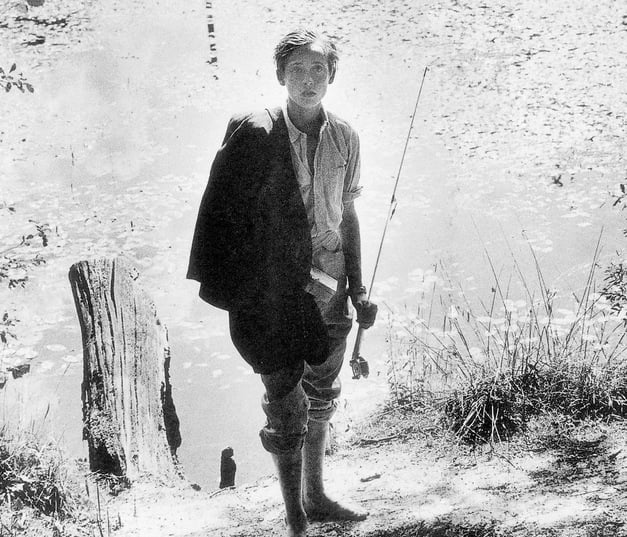
‘Too poor to go on school trip, boy fishes the day after classmates perish in plane crash’
LIFE magazine, Fall Special Edition, 1991
Although rarely shared, adolescents in the midst of Resignation quite often write excruciatingly honest poetry about their impending fate; indeed, The Catcher in the Rye is really one long poem about the agony of having to resign to living a human-condition-denying, superficial, totally false, Plato’s-cave-dwelling existence. Once Resignation is explained, many people can remember writing such agonising poems during their Resignation. I have written much more about Resignation in my book A Species In Denial at www.humancondition.com/asid-resignation, however, the following are two horrifically honest Resignation poems that are discussed at that link and worth including here to provide first-hand insights into the agony of adolescence, the first by 13-year-old Fiona: ‘You will never have a home again / You’ll forget the bonds of family and family will become just family / Smiles will never bloom from your heart again, but be fake and you will speak fake words to fake people from your fake soul / What you do today you will do tomorrow and what you do tomorrow you will do for the rest of your life / From now on pressure, stress, pain and the past can never be forgotten / You have no heart or soul and there are no good memories / Your mind and thoughts rule your body that will hold all things inside it; bottled up, now impossible to be released / You are fake, you will be fake, you will be a supreme actor of happiness but never be happy / Time, joy and freedom will hardly come your way and never last as you well know / Others’ lives and the dreams of things that you can never have or be part of, will keep you alive / You will become like the rest of the world—a divine actor, trying to hide and suppress your fate, pretending it doesn’t exist / There is only one way to escape society and the world you help build, but that is impossible, for no one can ever become a baby again / Instead you spend the rest of life trying to find the meaning of life and confused in its maze’. And the second Resignation poem is by 12-year-old Eric: ‘Growing Up: There is a little hillside / Where I used to sit and think / I thought of being a fireman / And of thoughts, I thought important / Then they were beyond me / Way above my head / But now they are forgotten / Trivial and dead.’

‘You are fake, you will be fake, you will be a supreme actor of happiness but never be happy.’
Actors in the Broadway musical On the Town
Yes, as these poems so painfully express, Resignation means blocking out all memory of the innocent, soulful, true world because it is unbearably condemning of our present immensely corrupted human condition: ‘You have no heart or soul and there are no good memories / Your mind and thoughts rule your body that will hold all things inside it; bottled up, now impossible to be released / You are fake, you will be fake, you will be a supreme actor of happiness but never be happy.’ And since virtually all adults have resigned, that is exactly how ‘fake’, or as the 16-year-old Holden Caulfield described it, ‘phony’, they have become. Clearly, the price of Resignation is enormous, but the alternative for virtually all humans of not resigning has been an even worse fate because it meant living with constant suicidal depression.
Appreciably then, in what forms the key passage in The Catcher in the Rye (indeed, it provides the meaning behind the book’s enigmatic title), Salinger has Holden Caulfield dreaming of a time when this absolute horror, indeed obscenity, of Resignation will no longer have to form an unavoidable part of human life: ‘I keep picturing all these little kids playing some game in this big field of rye and all. Thousands of little kids, and nobody’s around—nobody big, I mean—except me. And I’m standing on the edge of some crazy cliff. What I have to do, I have to catch everybody if they start to go over the cliff—I mean if they’re running and they don’t look where they’re going I have to come out from somewhere and catch them. That’s all I do all day. I’d just be the catcher in the rye and all. I know it’s crazy, but that’s the only thing I’d really like to be’ (see par. 118 of FREEDOM). And, as is explained in FREEDOM, the time that Holden Caulfield so yearned for when we will be able to ‘catch’ all children before ‘they start to go over the [excruciating] cliff’ of Resignation to a life of utter dishonesty, ‘phony’, ‘fake’ superficiality, and silence in terms of ‘never want[ing] to discuss anything’ truthfully again, has finally come about with the finding of the all-clarifying, redeeming and relieving truthful, fully compassionate explanation of human behaviour! Yes, the real ‘catcher in the rye’ is the ability to explain ‘human behavior’ so that it is no longer ‘sicken[ing]’ but understandable, and, best of all, healable. So FREEDOM provides the real, I-don’t-want-to-go-‘over-the-cliff’ help all adolescents going through Resignation have pleaded for.
Given the horrific agony apparent in the above pictures of adolescents pleading for help, I thought I might include another Resignation poem that makes it so clear how precious this redeeming understanding of the human condition is for all the children out there who are suffering having to go through Resignation. This Resignation poem is by 15-year-old Sarah. It has lines almost identical to those in 13-year-old Fiona’s poem included earlier. For example, where Fiona wrote, ‘What you do today you will do tomorrow and what you do tomorrow you will do for the rest of your life…You will become like the rest of the world—a divine actor, trying to hide and suppress your fate’, Sarah similarly wrote, ‘there is no past, no future. All that was has slipped slowly away. There is no living. Only existing, devoid of understanding and free will. That is how it must be as we fade in to the neverland’.
Sarah’s full poem can be found in the online version of my book A Species In Denial at www.humancondition.com/asid-resignation-poetry, but these are some other excruciating lines from her poem: ‘We are the dead. Move on to certain sacrifice, close off … Everything you ever knew, could touch, could taste, could smell, could hold, whisper into the flames as it crumbles into grey ash … the drive to play God – one day the ideas will take over who we are, our promiscuous wanderings into the infinite shall see us lost … The consequences of delving to deep into what was meant to be unknown strike a harsh blow on their world … fear beyond all fears … The question that looms before seemingly boundless canyons … the eyes strip back to reveal the ugly core. It’s dark. I can only see the metallic illumination of my pen against the blackness … Run away, recant, forget. What you want to forget will always return … Pain – It’s an ache going so deep that sometimes I think it becomes me. It is me. I can’t see beneath it to who I am, and I can’t make it go away. Every jab of pain we ever felt is marked somewhere within us, pushed away, covered in dust – but it only takes the will to remember and we feel it again … Mental paralysis … Tormenting demons rising and falling within us … A small child reaches unknowingly – only to be whisked into the spinning chasms of reality, frantically grasping where handles should be … Thoughts, so many thoughts – and the constant pain, always there. Sometimes it is a dull beat inside me, others a throbbing agony. I can’t tell where it comes from. My throat, my chest, my stomach – I hate the weakness – the fucking weakness – Father why have you forsaken me??? … draw away before they see who each other is inside – that is how it has always been – leave before it gets too close, too suffocating – Claustrophobia of the mind – leave before you become trapped in their emotions, entangled in their fears until you can’t pretend – and reality descends … at the slightest hint of a window you flee – you’re lost – you’re weak, you’re guilty … And time moves on, regardless, until tomorrow becomes yesterday and you are threatened with self awareness once again … it’s all pretend and no one can show you a morning’.
It should be mentioned that there have been people who avoided Resignation. Denial-free, effective thinking prophets have obviously been sufficiently sound and secure in self as a result of exceptional nurturing and love during their upbringing to not have had to resign to living in fearful denial of the issue of the human condition. (More is explained about prophets in F. Essay 39: Christ explained.) The psychiatrist R.D. Laing recognised that innocence had to be preserved to create a prophet when he wrote that ‘Each child is a new beginning, a potential prophet’ (see par. 680 of FREEDOM). The other variety of unresigned individuals are those I refer to as ‘ships at sea’. These are individuals who, as it were, bravely refused to ‘pull into port’ and adopt denial when the ‘storms’ of agonising confrontation with the issue of the human condition occurred ‘out at sea’ during their adolescence—basically, they chose honest madness over alienated stability. As is very apparent in the video titled ‘Resignation/Ships at Sea’(direct link: www.humancondition.com/wtm-videos/?video=resignation-unresigned-ships_resignation-unresigned-ships-at-sea-pt1, or find the video in the ‘Candid Discussions’ section at www.humancondition.com/wtm-videos), being one of those ‘ships at sea’ who aren’t exceptionally sound but try to live facing the human condition without reconciling understanding of it, has meant having to live an extremely torturous and lonely life. Of course—and this is also apparent in that ‘Resignation/Ships at Sea’ video—now that reconciling understanding of the human condition has been found, the great benefit of being a ‘ship at sea’ is that you have absolutely no difficulty reading about the human condition in FREEDOM. Unresigned minds don’t suffer from the ‘deaf effect’ that causes denial-ridden resigned minds to initially find it almost impossible to read FREEDOM, blaming the inaccessibility on every form of bad writing imaginable! (The problem of the ‘deaf effect’ and how to overcome it is addressed in The Great Guilt that causes the Deaf Effect, and then again briefly in Video/F. Essay 1 and more fully in Video/F. Essay 11; and you can read more about ‘ships at sea’ and their responsibility to lead the way in supporting this information in F. Essay 60.)
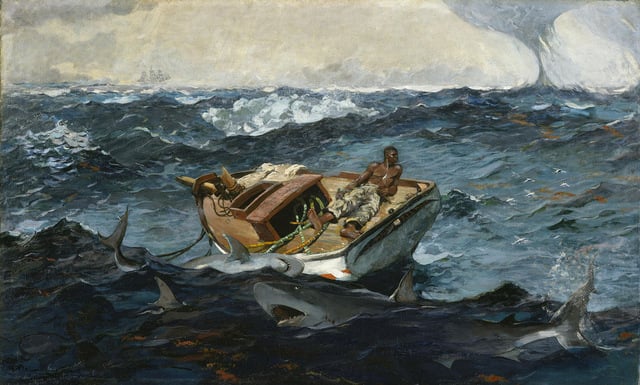
Winslow Homer’s The Gulf Stream (1899) encapsulates the
struggle and loneliness of the life of an unresigned ‘ship at sea’
With regard to how precious understanding the human condition is for young people agonising about the human condition, the following is a letter I received from 16-year-old student Lisa that illustrates how young adolescents who have not yet resigned to living in denial of the human condition have not suffered from the ‘deaf effect’ at all and been able to read and digest my books with the greatest of ease: ‘Before stumbling upon [your 1988 book] Free: The End Of The Human Condition that was discreetly shoved in the back of the philosophy section, I was at the end of my road. I had experienced a year of complete and utter pain, confusion, anger and frustration. When I finally took the plunge to seek medical help (as I was suicidal), I was diagnosed with severe depression and put on medication. After reading your book (which I stayed up till 2am reading, I just couldn’t put it down), I have been one of the fastest recovering depressants around. No wonder why. If everyone knew your insights, so much would be resolved. The purpose of this letter is to thank you for your courage in publishing your sure-to-be controversial work, and for basically recovering and saving this 16 year old. Not only is your work the absolute truth and has restored my faith in humanity, it has given me inspiration to help others. I may seem young to know what I’m talking about but, well, I do. I have tested all your work and others and yours always held up.’
It is a measure of just how unbearable the issue of the human condition has been that while Resignation has been the most important psychological event in human life, the process is never spoken of and has virtually gone unacknowledged in the public realm, with only a rare few of our most accomplished writers even managing to write about the suicidally depressing experience of engaging the subject of the human condition itself. To this end, many ‘philosophers and psychologists’ consider that the great Danish philosopher Søren Kierkegaard’s ‘analysis on the nature of despair is one of the best accounts on the subject’—with the ‘nature of despair’ being as close as the reviewer could go in referring to the worse-than-death, suicidal depression that the human condition has caused humans, but which Kierkegaard managed to give such an honest account of in his aptly titled 1849 book, The Sickness Unto Death: ‘the torment of despair is precisely the inability to die [and end the torture of our unexplained human condition]…that despair is the sickness unto death, this tormenting contradiction [of our ‘good and evil’, human condition-afflicted lives], this sickness in the self; eternally to die, to die and yet not to die’. Kierkegaard went on to include these unnervingly truthful words about how, even when the blocks were in place in our minds against recognising the existence of the issue of the human condition, the terrifying ‘anxiety’ it caused us still occasionally surfaced: ‘there is not a single [adult] human being who does not despair at least a little, in whose innermost being there doesn’t dwell an uneasiness, an unquiet, a discordance, an anxiety in the face of an unknown something, or a something he doesn’t even dare strike up acquaintance with…he goes about with a sickness, goes about weighed down with a sickness of the spirit, which only now and then reveals its presence within, in glimpses, and with what is for him an inexplicable anxiety.’ (see par. 119 of FREEDOM)
Another great philosopher, the Russian Nikolai Berdyaev, gave this extraordinarily forthright description of how trying to address and solve the sickeningly depressing issue of the human condition and, by so doing, make sense of human behaviour, has been a nightmare: ‘Knowledge requires great daring. It means victory over ancient, primeval terror. Fear makes the search for truth and the knowledge of it impossible…it must also be said of knowledge that it is bitter, and there is no escaping that bitterness…Particularly bitter is moral knowledge, the knowledge of good and evil. But the bitterness is due to the fallen state of the world, and in no way undermines the value of knowledge…it must be said that the very distinction between good and evil is a bitter distinction, the bitterest thing in the world…There is a deadly pain in the very distinction of good and evil, of the valuable and the worthless’ (The Destiny of Man, 1931; tr. N. Duddington, 1960, pp.14-15 of 310). Yes, trying to think about our species’ and our own upset, corrupted, ‘fallen’, seemingly ‘evil’ and ‘worthless’ state has been an ‘ancient, primeval terror’, a ‘deadly pain’, ‘the bitterest thing in the world’ for virtually all humans. As one of the key figures of the Enlightenment, the philosopher Immanuel Kant, said: we have to ‘Dare to know!’ (What is Enlightenment?, 1784).
We can appreciate here why most people suffer from the ‘deaf effect’ when they try to read my writings about the human condition, or when listening to my talks about it. Their minds realise they are being taken back towards a subject they once experienced during their adolescence as ‘primeval terror’, a ‘deadly pain’, such suicidal depression it was ‘the bitterest thing in the world’ that they don’t want to go there again. ‘Once bitten, twice shy’ as the saying goes. Even though the human condition has finally been explained and thus made safe to confront, it takes a little while to trust that the subject is now safe to confront. Two million years of fear of the human condition requires patience to overcome.
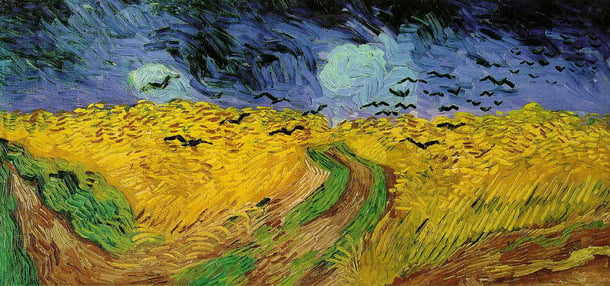
The ominous Wheatfield with crows (1890), believed to be Van Gogh’s last work
before he took his own life, conveys something of the terror of the human condition.
Yes, up until now the issue of the human condition has been a terrifying off-limits subject for almost everyone. In the case of the psychoanalyst Carl Jung, he certainly exhibited ‘great daring’ in his thinking when he wrote the following words about how terrifying the issue of the human condition has been: ‘When it [our shadow] appears…it is quite within the bounds of possibility for a man to recognize the relative evil of his nature, but it is a rare and shattering experience for him to gaze into the face of absolute evil’. The ‘face of absolute evil’ that Jung refers to is the ‘shattering’ possibility—if we allowed our minds to think about it—that we humans really are just a cancerous blight on this planet. The philosopher René Descartes also wasn’t exaggerating how utterly depressing the subject of the human condition has been for the conscious mind of most people when he wrote: ‘So serious are the doubts into which I have been thrown…that I can neither put them out of my mind nor see any way of resolving them. It feels as if I have fallen unexpectedly into a deep whirlpool which tumbles me around so that I can neither stand on the bottom nor swim up to the top’ (Complexity, 1993, p.154 of 208).
The opening lines of William Blake’s famous poem The Tiger—‘Tiger, Tiger, burning bright, In the forests of the night’—also make clear the great fear, and the resulting denial, we humans have had of the issue of our seemingly imperfect, ‘fallen’ or corrupted state or condition—a subject we have consciously repressed and yet one that has been ‘burning bright, In the forests of the night’ of our deepest awareness. In his poem, Blake honestly describes the terror and horrific depression that the issue of the human condition has caused: ‘what’ ‘eye’ ‘could’ be expected to look at the ‘fearful’ subject, ‘what’ ‘hand’ would ‘dare seize the fire’ that ‘could twist the sinews of thy heart?’; the terrible ‘hammer’, the ‘furnace’ in ‘thy brain’, no one can possibly ‘dare its deadly terrors clasp!’ Then, getting to the very heart of the issue, he asks, ‘Did he who made the lamb make thee?’—a rhetorical question disturbing in its insinuation that we are wholly unrelated to ‘the lamb’, to the world of innocence. (Read more about Blake’s poem in Video/F. Essay 10.)
And so to avoid that insinuation, humans have had to avoid almost all deep, penetrating, truthful thinking because almost any thinking at a deeper level brought us into contact with the unbearable issue of our seemingly horribly flawed condition: ‘There’s a tree with lovely autumn leaves; isn’t it amazing how beautiful nature can be, I wonder why some things are beautiful while others are not—I wonder why I’m not beautiful inside, in fact, so full of all manner of angst, selfish self-obsession, indifference and anger…aaarrrggghhhhh!!!!’ The very great English poet William Wordsworth (who is the subject of the next essay, F. Essay 31) was making this point when he wrote, ‘To me the meanest flower that blows can give thoughts that do often lie too deep for tears’, for it is true that even the plainest flower can remind us of the unbearably depressing issue of our seemingly horrifically imperfect, ‘fallen’, apparently ‘worthless’ condition. Yes, as the comedian Rod Quantock once said, ‘Thinking can get you into terrible downwards spirals of doubt.’ The Nobel Laureate Albert Camus wasn’t overstating the issue either when he wrote that ‘Beginning to think is beginning to be undermined’; nor was another Nobel Prize winner in Literature, Bertrand Russell, when he said, ‘Many people would sooner die than think’. And nor was the equally acclaimed poet T.S. Eliot when he wrote that ‘human kind cannot bear very much reality’. ‘The sleep of reason’, thinking at a deep level, does indeed ‘bring forth monsters’. (see par. 121 of FREEDOM)
We can see from these comments that to understand human behaviour required bottoming out on the fact that almost all of our behaviour has been driven by our fear of the human condition, and that this fear has resulted in us living an extremely superficial existence.
The fact is, the human race has lived a haunted existence, dogged by the dark shadow of its imperfect human condition, forever trying to escape it—the result of which is that we have become immensely superficial and artificial; ‘phony’ and ‘fake’, as the resigning adolescents so truthfully described it, and living on the absolute meniscus of life in terms of what we are prepared to look at, feel and consider. We are a profoundly estranged or alienated species, completely blocked-off from the amazing and wonderful real world, and from the truth of our self-corruption that thinking about that beautiful, inspired, natural, soulful world unbearably connects us to—as the aforementioned ‘fear’-lessly honest Scottish psychiatrist R.D. Laing (these honest words of Laing are the subject of F. Essay 48) has written: ‘Our alienation goes to the roots. The realization of this is the essential springboard for any serious reflection on any aspect of present inter-human life…We are born into a world where alienation awaits us. We are potentially men, but are in an alienated state…the ordinary person is a shrivelled, desiccated fragment of what a person can be. As adults, we have forgotten most of our childhood, not only its contents but its flavour; as men of the world, we hardly know of the existence of the inner world…The condition of alienation, of being asleep, of being unconscious, of being out of one’s mind, is the condition of the normal man…between us and It [our true selves or soul] there is a veil which is more like fifty feet of solid concrete…we have absconded…The outer divorced from any illumination from the inner is in a state of darkness. We are in an age of darkness. The state of outer darkness is a state of sin—i.e. alienation or estrangement from the inner light…We are all murderers and prostitutes…We are bemused and crazed creatures, strangers to our true selves, to one another.’ ‘We are dead, but think we are alive. We are asleep, but think we are awake. We are dreaming, but take our dreams to be reality. We are the halt, lame, blind, deaf, the sick. But we are doubly unconscious. We are so ill that we no longer feel ill, as in many terminal illnesses. We are mad, but have no insight [into the fact of our madness].’ ‘We are so out of touch with this realm [where the issue of the human condition lies] that many people can now argue seriously that it does not exist.’ (see par. 123 of FREEDOM)
Yes, what did the great prophet Isaiah say about the horrifically corrupted condition of the human race that unresigned adolescents can see: ‘From the sole of your foot to the top of your head there is no soundness—only wounds and welts and open sore…Your country is desolate…the faithful city has become a harlot! She once was full of justice; righteousness used to dwell in her’, and ‘the world languishes and withers…The earth is defiled by its people; they have disobeyed the laws [become divisively rather than integratively behaved]…In the streets…all joy turns to gloom, all gaiety is banished from the earth’ (see par. 182 of FREEDOM).
The cover of the metal band With Life In Mind 2010 Grievances album
Laing and Isaiah’s honesty is incredible, but what would be really interesting would be to see the world from the pre-resigned position of young adolescents, and we can actually do that because, as described in paragraph 229 of FREEDOM, we have these clearly unresigned, denial-free, honest lyrics from the young American heavy metal band With Life In Mind. Following their debut album, appropriately titled, The Human Condition, in 2010 With Life In Mind released Grievances, which contained the following lyrics: ‘It scares me to death to think of what I have become…I feel so lost in this world’, ‘Our innocence is lost’, ‘I scream to the sky but my words get lost along the way. I can’t express all the hate that’s led me here and all the filth that swallows us whole. I don’t want to be part of all this insanity. Famine and death. Pestilence and war. [Famine, death, pestilence and war are traditional interpretations of the ‘Four Horsemen of the Apocalypse’ described in Revelation 6 in the Bible. Christ referred to similar ‘Signs of the End of the Age’ (Matt. 24:6-8 & Luke 21:10-11).] A world shrouded in darkness…Fear is driven into our minds everywhere we look’, ‘Trying so hard for a life with such little purpose…Lost in oblivion’, ‘Everything you’ve been told has been a lie…We’ve all been asleep since the beginning of time. Why are we so scared to use our minds?’, ‘Keep pretending; soon enough things will crumble to the ground…If they could only see the truth they would coil in disgust’, ‘How do we save ourselves from this misery…So desperate for the answers…We’re straining on the last bit of hope we have left. No one hears our cries. And no one sees us screaming’, ‘This is the end.’ Saying ‘We’ve all been asleep since the beginning of time’ echoes all that Laing said about the extent of our blocked-out, alienated condition; and saying ‘Everything you’ve been told has been a lie’ reiterates the extent of the dishonest denial in the world, especially in science, today (see Video/F. Essay 14 & F. Essay 40); and saying ‘So desperate for the answers’ confirms how incredibly important are all the ‘answers’ about our human condition that are presented in FREEDOM. (For more analysis on the endgame state humanity has now reached, read F. Essay 55.)
That Biblical prophet from ancient times, Isaiah, was certainly exceptionally honest, but, given how deeply entrenched denial has become in recent times, both Laing’s and With Life In Mind’s honesty is absolutely astonishing. Another rare example from recent times of someone who managed to depict and penetrate our ‘fifty feet of solid concrete’ wall of denial of the truth of our tortured, ‘good-and-evil’-stricken, soul-devastated, corrupted or ‘fallen’ human condition was the Irish artist Francis Bacon. While people in their resigned state of denial of what the human condition actually is typically find his work ‘enigmatic’ and ‘obscene’ (The Sydney Morning Herald, 29 Apr. 1992), there is really no mistaking the agony of the human condition in Bacon’s death-mask-like, twisted, smudged, distorted, trodden-on—alienated—faces, and tortured, contorted, stomach-knotted, arms-pinned, psychologically strangled and imprisoned bodies; consider, for instance, his Study for self-portrait below. It is some recognition of the incredible integrity/honesty of Bacon’s work that in 2013 one of his triptychs sold for $US142.4 million, becoming (at the time) ‘the most expensive work of art ever sold at auction, breaking the previous record, set in May 2012, when a version of Edvard Munch’s The Scream [another exceptionally honest, human-condition-revealing painting] sold for $119.9 million’ (TIME, 25 Nov. 2013). (F. Essay 44 discusses Bacon’s Study for self-portrait and Munch’s The Scream.)
Since FREEDOM was published, and from which the above paragraph is taken (see par. 124), another extraordinarily truthful depiction from recent times of our horrifically psychologically upset and alienated-from-soul condition, American artist Jean-Michel Basquiat’s 1982 ‘Untitled’ painting (reproduced below, and also included in F. Essay 40), was sold in May 2017 for ‘$US110.5 million’, which, at the time, was ‘the sixth most expensive artwork ever sold at auction’ (The New York Times, 18 May 2017). (Incidentally, another human-condition-revealing painting by Basquiat is included in FREEDOM at par. 1059.)
It may seem incongruous that people living in denial of the human condition should pay such exorbitant sums for such stark depictions of our psychologically upset state, but living in an almost completely ‘phony’, ‘fake’, ‘alienat[ed]…to the roots’ and truthless world, which FREEDOM reveals we have been, has meant that the honesty about our true state depicted by Bacon, Munch and Basquiat could be immensely valued for its cathartic, purging, purifying, relieving powers.
Yes, the truth about ourselves is what the human race has been in search of, and that the most valuable paintings are those that are able to reveal that truth just a little bit, shows just how precious that truth really is. WELL, FREEDOM PROVIDES THE ULTIMATE FORM OF THIS THERAPEUTIC TRUTH, BECAUSE BY EXPLAINING THE HUMAN CONDITION IT AT LAST ALLOWS US TO FREE OURSELVES FROM THE SOUL-DESTROYING TORTURE OF THE HUMAN CONDITION, AND, BY SO DOING, TRANSFORM OUR LIVES INTO A STATE OF UNIMAGINABLE HAPPINESS AND EXCITEMENT—AND ENABLE FUTURE GENERATIONS OF ADOLESCENTS TO NEVER AGAIN HAVE TO ‘GO OVER THE CLIFF’ AND RESIGN TO A LIFE OF SOUL-DEADENING, DISHONEST, ALIENATED BLACKOUT. THE HUMAN RACE COMES BACK TO LIFE NOW. WE ARE ‘FREE AT LAST, THANK GOD ALMIGHTY, WE ARE FREE AT LAST’, AS MARTIN LUTHER KING JR DREAMED WE WOULD ONE DAY BE.
- - - - - - - - - - - - - - - - - -
Watch Jeremy Griffith present the breakthrough redeeming explanation of the human condition in THE Interview; for a fuller explanation read chapter 3 of FREEDOM; and for a summary presentation of the key ‘instinct vs intellect’ explanation watch Video/F. Essay 3. And as mentioned, Video/F. Essay 4 describes how cooperative, loving and gentle our bonobo-like ape ancestors were—the instinctive memory of which is our moral soul—and how unbearably depressing it has been for us fully conscious, psychologically upset, soul-corrupted, ‘fallen’ humans to not be able, until now, to explain and understand why we corrupted our all-loving innocent soul. You can also read more about what exactly the human condition is in Video/F. Essay 10; and much more about the anguish of Resignation in Freedom Expanded: Book 1.
Discussion or comment on this essay is welcomed—see below.
Please Note, if you are online you can read, print, download or listen to (as a podcast) THE Interview, The Great Guilt, The Great Transformation, Sermon On The Beach or any of the following Freedom Essays by clicking on them below.
INTRODUCTION TO THE EXPLANATION & RESOLUTION OF THE HUMAN CONDITION: THE Interview That Solves The Human Condition And Saves The World! | The Great Guilt that causes the Deaf Effect | The Great Transformation: How understanding the human condition actually transforms the human race | Sermon On The Beach | Freedom Essay 1 Your block to the most wonderful of all gifts | 2 The false ‘savage instincts’ excuse | 3 THE EXPLANATION of the human condition | 4 The ‘instinct vs intellect’ explanation is obvious – short | 5 The transformation of the human race | 6 Wonderfully illuminating interview | 7 Praise from Prof. Prosen | 8 “How this ends racism forever” | 9 “This is the real liberation of women” | 10 What exactly is the human condition? | 11 The difficulty of reading FREEDOM and the solution | 12 One hour summarising talk | 13 The WTM Deaf Effect Course | 14 Dishonest biology leads to human extinction | 15 How your life can immediately be transformed | 16 The Shock Of Change | THE BOOKS: 17 Commendations & WTM Centres | 18 FREEDOM chapter synopses | 19 FREEDOM’s significance by Prof. Prosen | 20 The genius of Transform Your Life | THE OTHER KEY BIOLOGICAL EXPLANATIONS: 21 How did we humans acquire our altruistic moral conscience? | 22 Fossil discoveries evidence our nurtured origins | 23 Integrative Meaning or ‘God’ | 24 How did consciousness emerge in humans? | 25 The truthful biology of life | • Survey seeking feedback | MEN & WOMEN RECONCILED: 26 Men and women reconciled | 27 Human sex and relationships explained | THE END OF RACISM: 28 The end of racism | 29 Can conflict ever end? | RESIGNATION: 30 Resignation | 31 Wordsworth’s all-revealing great poem | MORE ON THE TRANSFORMATION: 32 More on the Transformation | 33 Jeremy on how to become transformed | THE END OF POLITICS: 34 This understanding ends the polarised world of politics | 35 Death by Dogma left-wing threat | 36 Saving Western civilisation from left-wing dogma | 37 The meaning of superhero and disaster films | RELIGION DECIPHERED: 38 Noah’s Ark explained | 39 Christ explained | 40 Judgment Day finally explained | 41 Science’s scorn of religion | MEANING OF ART & CULTURE: 42 Cave paintings | 43 Ceremonial masks explained | 44 Art makes the invisible visible | • Second survey seeking feedback | 45 Prophetic songs | 46 Anne Frank’s faith in human goodness fulfilled | 47 Humour and swearing explained | 48 R.D. Laing’s fearless honesty | ABOUT BIOLOGIST JEREMY GRIFFITH: 49 Jeremy’s biography | 50 Australia’s role | 51 Sir Laurens van der Post’s fabulous vision | 52 Jeremy’s children’s book A Perfect Life | 53 The ‘instinct vs intellect’ explanation is obvious – long | 54 The accusation of hubris | DO WE FAIL OR DO WE MAKE IT? 55 Endgame for the human race | 56 Why there have been ferocious attacks on the WTM | 57 Magnificence of the Transformed State – video 1 | 58 Magnificence of the Transformed State – video 2 | MARKETING: 59 Shouldn’t the WTM’s website be toned down? | 60 The crime of ‘ships at sea’ ‘pocketing the win’ | GENERAL DISCUSSIONS BY JEREMY: 61 General Discussion by Jeremy Aug. 2018 | 62 Jeremy’s Masterpiece Presentation Feb. 2019 | HEALTH & HEALING: 63 Pseudo therapy/healing | 64 Real therapy/healing | From here on are Transformation Affirmations and More Good Info Emails
These essays were created in 2017-2024 by Jeremy Griffith, Damon Isherwood, Fiona Cullen-Ward, Brony FitzGerald & Lee Jones of the Sydney World Transformation Movement Centre. All filming and editing of the videos was carried out by Sydney WTM members James Press & Tess Watson during 2017-2024. Other members of the Sydney WTM Centre are responsible for the distribution and marketing of the videos/essays, and for providing subscriber support.

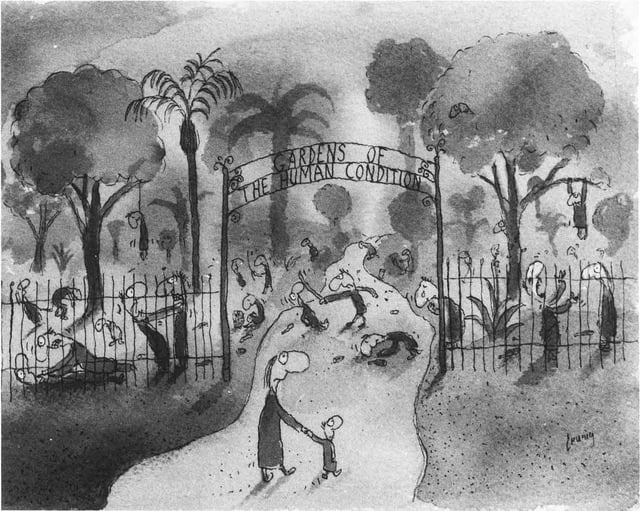


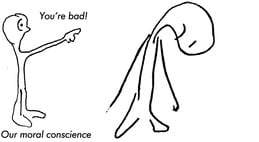
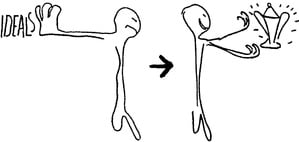



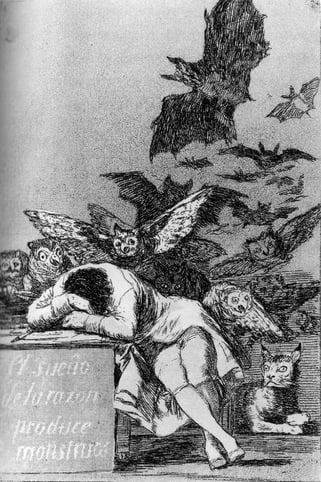
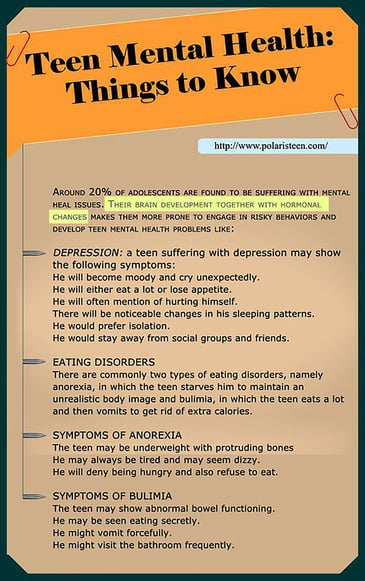
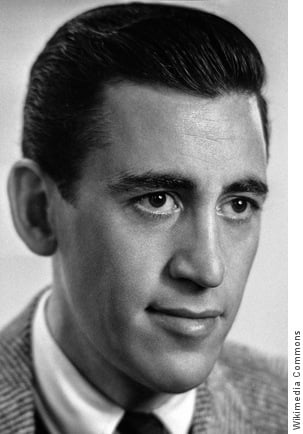
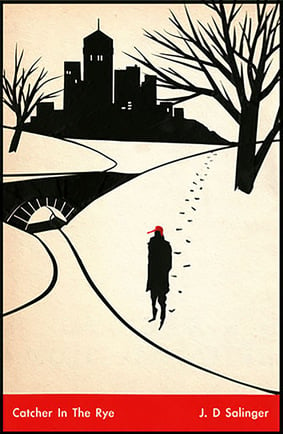




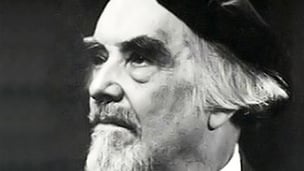


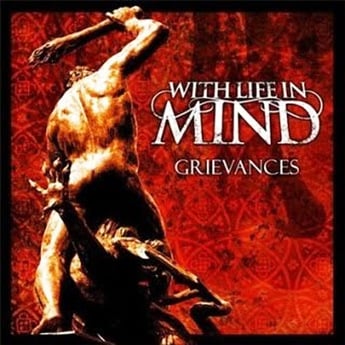

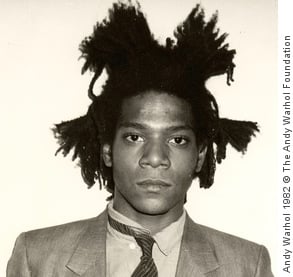
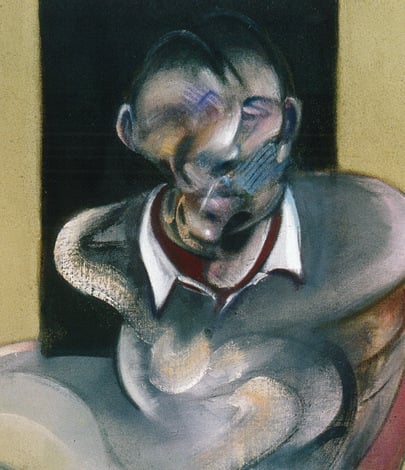

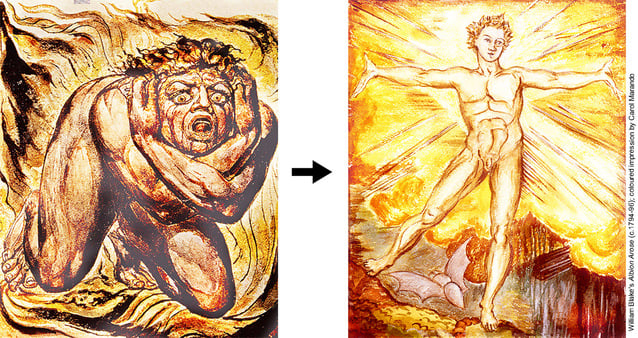

Please wait while the comments load...
Comments